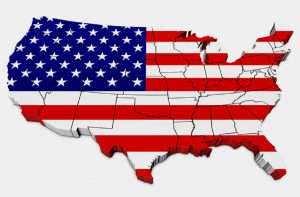The Volokh Conspiracy
Mostly law professors | Sometimes contrarian | Often libertarian | Always independent
My New USA Today Op Ed on Coronavirus and Federalism
The article explains why the coronavirus crisis does not justify weakening constitutional limits on federal government power.

Earlier today, USA Today published my new op ed on federalism and the coronavirus crisis. Here is an excerpt:
President Donald Trump provoked widespread criticism last week when he claimed he had "total" authority to reopen the economy, thereby overriding lockdown orders issued by numerous state governments. Democratic governors, such as Andrew Cuomo of New York, pushed back, arguing that such use of federal power would be "a total abrogation of the Constitution," which leaves such decisions to the states.
The dispute is, perhaps, the latest example of liberal Democrats using constitutional federalism to combat Trump.
More recently, the White House issued guidelines for reopening that are merely advisory. But Trump has not repudiated previous assertions of total authority and could potentially resort to them again if states do not act as he wishes.
At the same time, however, others on the left contend that the coronavirus crisis justifies weakening constitutional constraints on federal power, so as to ensure a cohesive national policy. For example, University of Illinois law school Dean Vikram Amar argues that constraints on federal power to regulate interstate commerce unjustifiably prevent the federal government from ordering a nationwide lockdown, and could also block it from requiring mandatory vaccination of all Americans when and if a vaccine becomes available. Others also argue against constitutional barriers to a comprehensive nationwide lockdown enforced by the federal government and a federal vaccination mandate.
If such arguments prevail, they will set a dangerous precedent. In a time of crisis, it is tempting to assume that we need to concentrate power as much as possible. But centralization can often make things worse rather than better. Moreover, consolidations of power that arise during crises often continue long afterwards.
I previously wrote about federalism and the coronavirus crisis here.
Editor's Note: We invite comments and request that they be civil and on-topic. We do not moderate or assume any responsibility for comments, which are owned by the readers who post them. Comments do not represent the views of Reason.com or Reason Foundation. We reserve the right to delete any comment for any reason at any time. Comments may only be edited within 5 minutes of posting. Report abuses.
Please to post comments


Of course, it matters if this is actually a crisis.
Or a secret Chinese bioweapon.
Oy.
The problem in 1787 was that each state was a sovereign nation, charging duties on interstate commerce -- which would have been an even bigger issue if all 13 didn't have direct access to the Atlantic and weren't landlocked.
National emergency or not -- and in 1787, the Indians were a similarly feared national emergency -- the Federal Government was created for the purpose of preventing states from screwing around with other states. And to Federalize some state functions -- Shay's Rebellion had terrified them, and had to be put down by private mercenaries paid for by Boston bankers.
The states were never really sovereign nations. They were colonies, subject to the rules set by the British crown. When they declared independence, they formed a confederation (under the Articles of Confederation), and then a nation (under the Constitution). They were never nation-states, really.
Ummm -- no.
Look at the problems of the Articles of Confederation....
Bankruptcy was another issue, but there were very real reasons why interstate commerce and coining money were FEDERAL powers under the Constitution...
This doesn't seem to have anything to do with Dilan Esper's historical point...
The arguments about Federalism are not about Federalism, it is about credit and blame. The Governors sat on their hands waiting for Trump to lock down and country and criticized Trump for not doing just that. Then when things became bad they finally took action, crippling every state's economy, but still blaming Trump. Now when Trump says he will reopen the economy they claim states rights and Federalism, seeking credit for getting things going again. The shouted "Trump is a dictator". Trump said okay Governors, you decide, and the left shouted "Trump is an evil political mastermind setting a trap for the Governors (Esquire). Can you see where this is going? Reopening goes well, no seconds wave and the economy rebounds quickly, it is all to the Governors credit. Things go badly, there is a second serious wave of the virus, the economy continues to decline, and it will all be Trumps fault. There is nothing on Earth or in the Heavens Trump could do that would make these people even slightly happy.
Love how Democrats waffle on states' rights - always being on the opposite side from Trump.